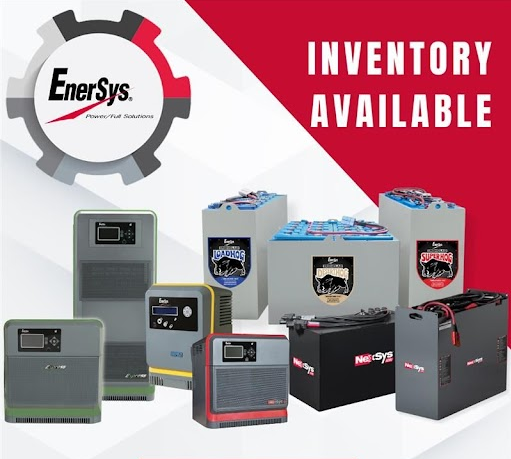Warehouse 101: How to Choose Your Warehouse – A CEO’s Guide
Hi, I’m Jeff Hillen, the CEO of Warehouse Buyers Club. If you’re reading this, it probably means you’re looking to select a warehouse, whether it’s for inventory storage, distribution, or simply to house your growing empire of products. No pressure, right? As someone who's spent a lot of time thinking about warehouses, I’ve got a few key things I want to share with you.
Selecting the right warehouse is one of those decisions that can make or break your business. It's like picking the perfect pair of shoes—sure, you could just grab the first pair you see, but if you want to be comfortable, efficient, and stylish (okay, maybe not stylish, but you get the idea), there are some important factors to keep in mind. Let's dive into the basics.
1. Location, Location, Location (Seriously)
In real estate, it’s all about location, and the same goes for warehouses. Whether you’re storing products for local delivery or planning to ship nationwide (or internationally), the proximity to your customers or suppliers. Think of it as a mini supply chain hub.
Key Considerations:
-
Shipping Costs: The closer your warehouse is to your customer base, the lower your shipping costs will generally be. This can lead to significant savings in the long run.
-
Access to Major Highways and Ports: A warehouse close to highways, railroads, or ports can streamline logistics and reduce transit time.
-
Labor Availability: Is your warehouse in an area where you can easily hire warehouse workers? Having a solid labor pool nearby can make a big difference in efficiency.
Remember, if you're thinking about the cheapest possible location, that can be tempting—but if it’s in the middle of nowhere, you might end up spending more on fuel and delayed shipments. So, think about it carefully.
2. Space Isn’t Just Space – It’s the Right Space
When it comes to warehouses, bigger isn’t always better. You need the right kind of space for what you plan to do. Whether you’re dealing with high-volume inventory or specialized items that require unique storage methods, you want a space that’s optimized for your needs.
Key Considerations:
-
Ceiling Height: High ceilings = more vertical space for stacking products. This is essential if you plan on maximizing your space.
-
Floor Plan: A good layout can make a world of difference. Ideally, you'll want clear areas for receiving, storing, picking, packing, and shipping. The flow should feel like a well-rehearsed dance, not a chaotic conga line.
Temperature and Humidity Control: If you're handling sensitive products (think food, pharmaceuticals, or electronics), you’ll need a warehouse with climate control. Not all warehouses come with this feature, so make sure you ask before signing anything. It’s the difference between smooth operations and a potential disaster.
3. The Cost Is Not Just the Rent
Ah, yes. The all-important question of cost. Sure, you have the rent, but there are plenty of other costs you might overlook. It’s like when you buy a cheap car and forget to factor in gas, insurance, and maintenance. Here’s what to think about:
Key Considerations:
-
Utility Costs: Older warehouses might be less energy-efficient, meaning you could face higher electricity bills. Trust me, no one wants that surprise.
-
Labor Costs: Be sure to budget for labor costs, including overtime or any specialized workers you may need. After all, a warehouse with no workers is just an empty building.
Maintenance and Repairs: A leaky roof, malfunctioning HVAC system, or broken loading dock could lead to unexpected costs. Check the building’s condition and ask for recent maintenance records to avoid surprises.
4. Technology and Automation – Don’t Sleep on It
In today’s fast-paced world, a warehouse with outdated tech is like a flip phone in the age of smartphones. If you’re serious about running an efficient operation, consider the level of technology that’s available in the warehouse.
Key Considerations:
-
Warehouse Management System (WMS): A good WMS can help you track inventory, streamline picking and packing, and optimize your storage. Look for a warehouse that’s already set up for tech, or at least one that can integrate with your existing systems.
-
Automation Potential: While you might not need a fully automated warehouse right away, having the infrastructure to add automation later on can give you a competitive edge as you grow.
-
Security Systems: Security is non-negotiable. Look for features like surveillance cameras, access control systems, and 24/7 monitoring to ensure your products are safe.
5. Flexibility – Because Life Happens
No matter how carefully you plan, business changes. Maybe you’ll expand and need more space, or perhaps your needs will shift, and you’ll need less. A warehouse lease should offer enough flexibility to accommodate these changes without locking you into a rigid contract that feels like an ancient relic from the past.
Key Considerations:
-
Lease Terms: A short-term lease might give you more flexibility if you’re just getting started, but if you're planning for long-term growth, a longer lease with expansion options could be a smart move.
Room for Growth: Make sure you’re not boxed in. Look for a warehouse that has room for expansion or additional space in the vicinity if necessary.
6. Inspect Everything – Yes, Everything
Before you sign on the dotted line, take the time to visit the warehouse in person (and bring your checklist). I’m talking about a thorough inspection of the roof, the floors, the doors, the parking lot – everything. Don’t just look at it from the outside and assume it’s good to go. You might catch something that can save you a headache down the line.
Choosing a warehouse might not sound as exciting as launching the next big app, but trust me, it’s just as important. The right warehouse will help your business run smoothly, and the wrong one could end up being a costly, logistical nightmare.
So, when you’re in the process of selecting your warehouse, remember: even if you can’t get a location right next to one of our partner sites, location is key!
Good luck!
– Jeff Hillen, CEO of Warehouse Buyers Club



